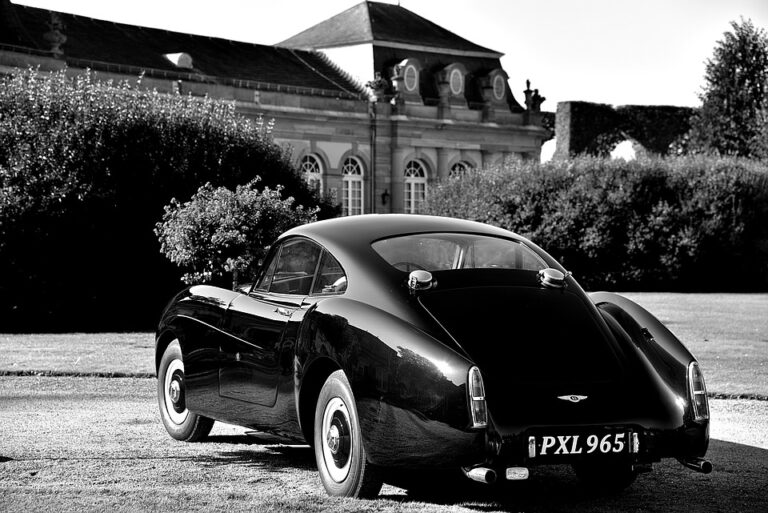Classic Cars: Timeless Treasures of the Automotive World
Meta Description: Discover the allure of Classic Cars—explore history, tips for collectors, and the best models to invest in.
Classic cars represent more than just a mode of transportation; they embody a lifestyle and a passion that transcends generations. From their sleek designs to their roaring engines, these timeless treasures captivate enthusiasts and collectors alike. In this article, we will explore the allure of classic cars, delve into their rich history, provide valuable collecting tips, and highlight some must-have models for any serious collector.
The Allure of Classic Cars
What Makes a Car ‘Classic’?
To understand the magic behind classic cars, one must first define what makes a vehicle "classic." While there is no universally accepted definition, classic cars are typically those that are at least 25 years old and possess certain qualities such as distinctive styling, historical significance, and limited production numbers. They often feature innovative engineering that reflects the era they were designed in, captivating both aesthetic and mechanical enthusiasts.
Why Collect Classic Cars?
-
Historical Value: Each classic car tells a story, representing its era’s social, economic, and technological advancements. Owning a classic car means preserving a piece of automotive history.
-
Investment Potential: Classic cars, particularly rare or well-maintained models, can appreciate significantly over time. Investing in classic vehicles has proven more lucrative than traditional stocks for many collectors.
- Community: Being a part of the classic car community allows enthusiasts to share their passion, attend shows, and connect with other like-minded individuals.
History of Classic Cars
The Early Years: 1900-1950s
The history of classic cars traces back to the early 1900s. Cars like the Ford Model T revolutionized personal transportation, making it more accessible to the general public. The 1920s and 1930s saw the emergence of luxury brands like Cadillac and Duesenberg, which set the standard for performance and style.
The Golden Era: 1950s-1970s
The Golden Era of automotive history produced some of the most iconic classic cars. The ’55 Chevrolet Bel Air, Ford Mustang (1964), and Porsche 911 (1964) became cultural icons, synonymous with freedom and adventure. This era also highlighted the innovation of powerful V8 engines and bold designs, influencing car aesthetics for decades to come.
Modern Classics: 1980s-Present
As we moved into the late 20th century, vehicles like the BMW M3 and the Toyota Supra gained traction among enthusiasts. Though not yet considered ‘classics’ by some standards, many of these models are rapidly gaining recognition for their performance and influence.
Tips for Collecting Classic Cars
1. Do Your Research
Before diving into the world of classic cars, invest time in research. Understand the different models, their historical significance, and market trends. Websites like ClassicCars.com and Hemmings are excellent resources for enthusiasts seeking knowledge.
2. Attend Car Shows
Car shows provide an immersive experience where collectors can observe various models and meet seasoned collectors. Attending these events will deepen your understanding and help you forge valuable connections.
3. Inspect Thoroughly
A classic car’s condition can significantly impact its value. Always conduct a thorough inspection or hire a professional mechanic to evaluate the vehicle before making a purchase. Look for signs of rust, frame damage, and the condition of the engine and transmission.
4. Consider Storage and Maintenance
Classic cars require proper storage to maintain their condition. Invest in a climate-controlled garage and ensure regular maintenance checks. Establishing a relationship with a specialist mechanic can also protect your investment.
5. Join Enthusiast Clubs
Becoming a member of classic car clubs lets you connect with other owners, gain insights, and access exclusive events and resources.
Must-Have Classic Cars for Your Collection
1. Ford Mustang (1964-1973)
The Ford Mustang is a quintessential American car known for its performance and style. Its status as a cultural icon makes it a desirable addition for any collector.
2. Chevrolet Corvette (1963-1967)
The classic Corvette stands as a symbol of American muscle, celebrated for its sleek design and thrilling performance. Models from this era, especially the Sting Ray, remain highly sought after.
3. Porsche 911 (1964-Present)
The Porsche 911 has a storied legacy in the automotive world, recognized for its unique design and outstanding engineering. Early models are particularly revered among collectors.
4. Volkswagen Beetle (1938-2003)
The Volkswagen Beetle, with its distinctive shape, is an icon of automotive history. Its cultural significance and global appeal make it an excellent choice for collectors.
5. Jaguar E-Type (1961-1975)
Hailed as one of the most beautiful cars ever made, the Jaguar E-Type combines luxury and performance. Its limited production and timeless design have secured its place in classic car history.
Conclusion
Collecting classic cars is not just a hobby; it’s an investment in history, culture, and community. With careful research, a passion for preservation, and a keen eye for quality, anyone can find joy in these incredible machines. Whether you’re drawn to the roar of a V8 engine or the elegance of a vintage design, classic cars hold a timeless appeal that continues to inspire and excite. So, polish up that dream car and hit the road—your classic journey awaits!
Now is the perfect time to immerse yourself in the world of classic cars. Join clubs, attend more shows, and start your collection today!


